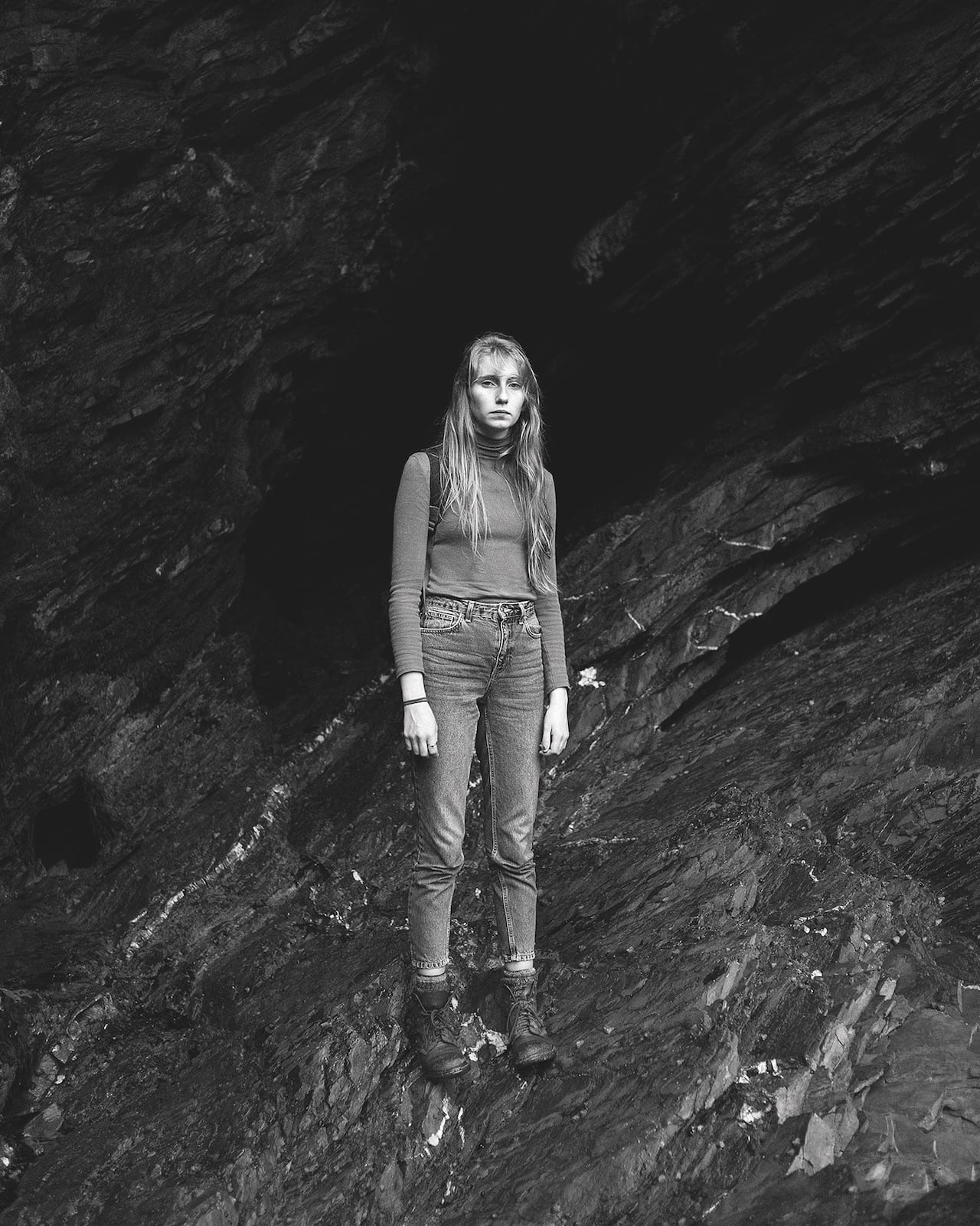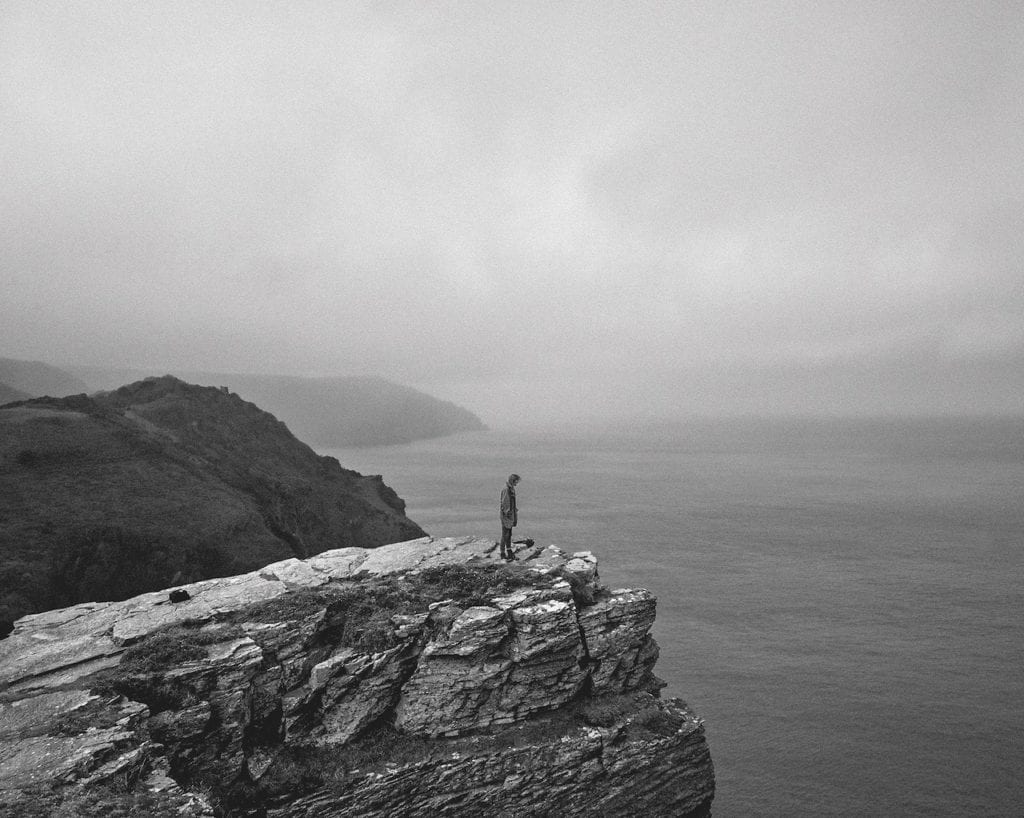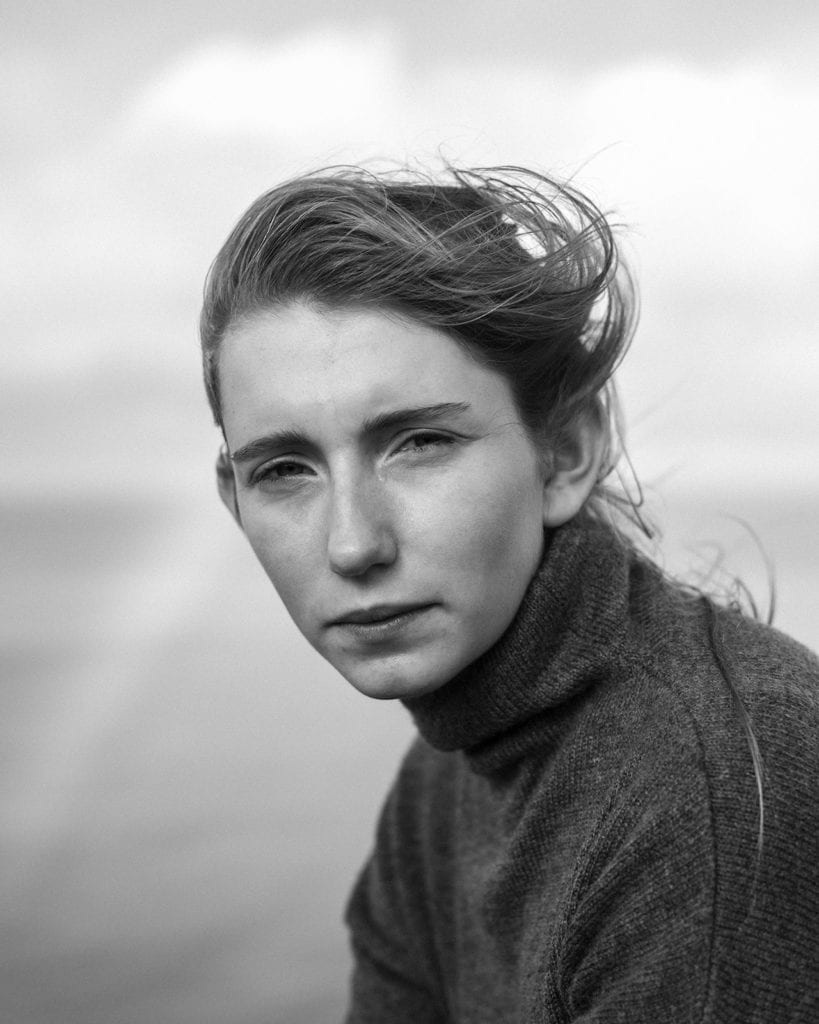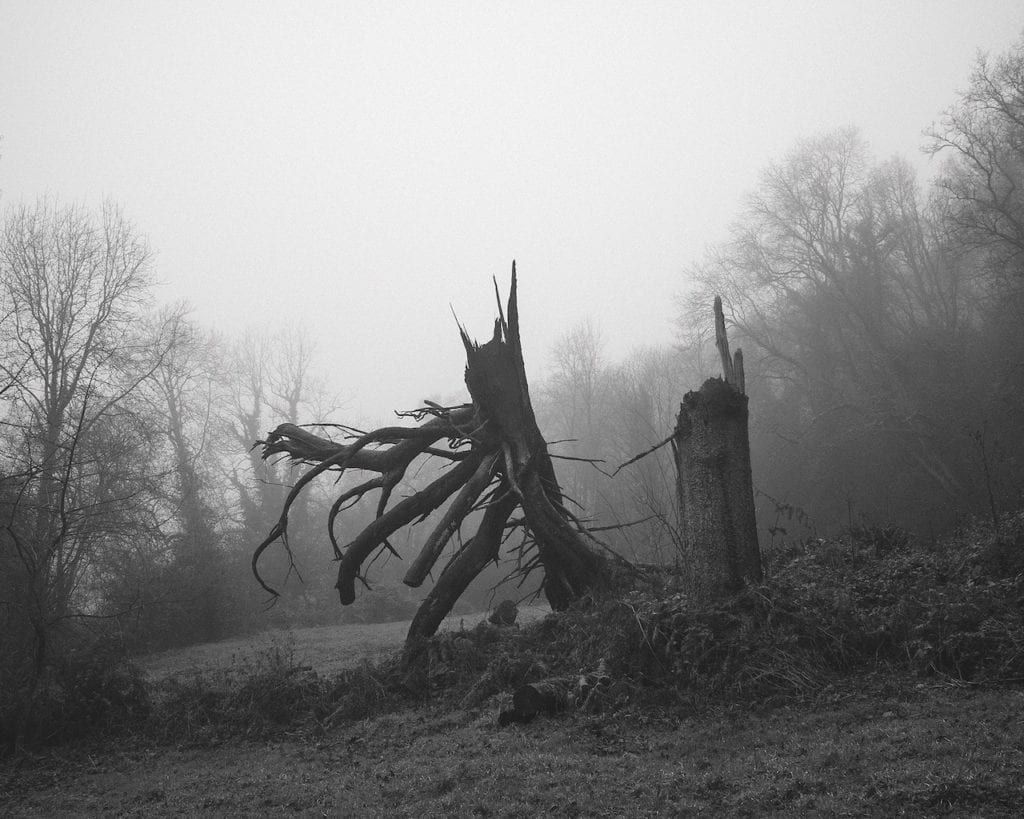Darch explores anxiety and melancholy in the UK as it faces up to an uncertain future
On 23 June 2016, the UK’s electorate voted to leave the European Union. For Robert Darch, the morning after remains etched in the memory. “I woke up feeling this overwhelming sense of heaviness, and the sadness that we’d lost something,” he recounts. “It felt like a tipping point into the surreality that was to follow.” The Exeter-based photographer is no stranger to the hinterlands between fact and fiction. The Moor, published as a book in 2018, transformed the swampy mires and stark tors of Dartmoor into a dystopian vision of the near future. Darch’s ongoing project, Durlescombe, meanwhile, assembles new and unearthed photography, illustrations and images from his own family history to trace a fictitious Devon village through the seasons.
These works create imagined narratives from real life. But how can photography negotiate a world where reality has become odder than fiction? Darch’s latest series, The Island, provides an answer. Landscapes and portraits together capture a country racked with tension. They are shot in black-and-white, and suffused with an almost palpable melancholy. “When I tried monochrome before, it felt like I was trying to force it,” recalls Darch. “But here it made sense symbolically and aesthetically.”
The photographs in The Island were largely taken around the West Country and Darch’s hometown in Birmingham’s commuter belt. “It’s important for me to make work where I live,” he says. “You have a real sense of the landscape, the geography, the people.” Several images hark back to English landscape painters, such as John Constable or John Northcote Nash, though Darch’s England is wintry and solemn rather than resplendent in sun. There are mist-shrouded coves, murky hills and forlorn trees. The sea, emblematic of Britain’s decision to detach itself from its neighbours, is a persistent and forbidding presence.
Darch invited friends and acquaintances on his walks through countryside and coastline, who then became his subjects. “There’s an intimacy, and in a way it becomes a collaboration between me and the person as I’m taking a picture,” he says. Some of these figures are rooted in their environment: one man stands on a dramatic cliff, looking out across the foggy sea, while a woman crouches in an overgrown meadow before an austere country house. Others are wistful portraits, where subjects have their anxieties etched on their faces. All are young adults, the section of society most opposed to Brexit. “When you’re younger, feelings and emotions are heightened, more pronounced. So I wanted to draw on that,” says Darch.
Even his most oblique shots thrum with uncertainty. A shovel sits atop a slick of sticky, unctuous liquid, which could as easily be blood as paint. An eerie box lays on a wooden floor, splattered by droppings. “It’s a barn owl box,” he explains, “but it feels very ambiguous. I enjoy it when work makes you question; makes you wonder what it shows.” As the UK prepares to leap into an unknown future, these ambiguities feel entirely opposite.
This article was originally published in issue #7894 of British Journal of Photography. Visit the BJP Shop to purchase the magazine here.
The Island by Robert Darch is published by Setanta Books.




